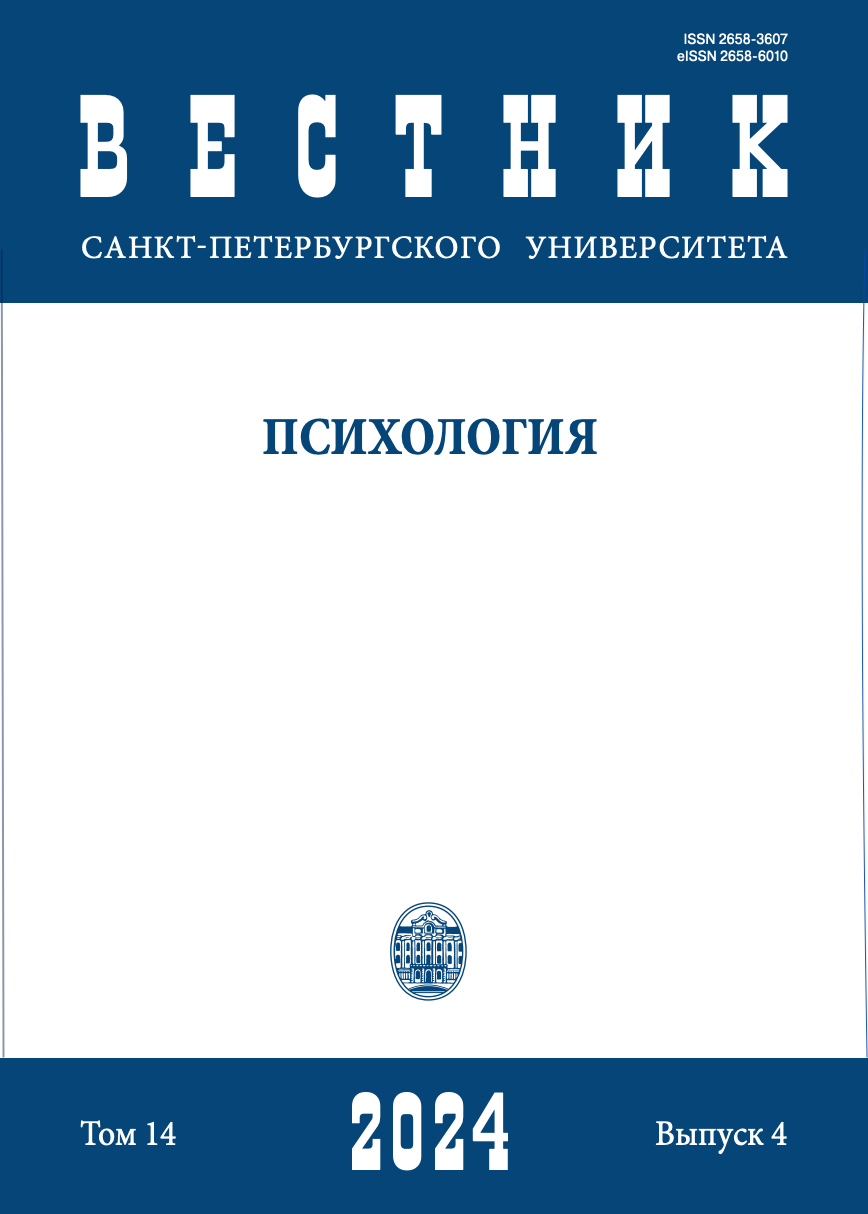Ethnic Identity and Career Attitudes among the Youth
DOI:
https://doi.org/10.21638/spbu16.2024.406Abstract
The article presents the results of an empirical study of the relationship between ethnic identity and career attitudes of young people. The study involved 323 people aged 18 to 35 years (average age - 25 years), including 99 women and 55 men living in St. Petersburg; 111 women and 58 men living in Kazan. Methods used: questionnaire "Types of Ethnic Identity" by G. U. Soldatova, S. V. Ryzhova; express-evaluation scales of ethnic identity and feelings related to ethnicity by N. M. Lebedeva, Lee J.Y. et al. proactive career construction (krafting) assessment questionnaire translated and adapted by S.D. Gurieva et al., "Career Anchors" by E. Schein, socio-demographic questionnaire. The methods of descriptive statistics, nonparametric criteria, r-Spearman rank correlation coefficient were used to process the obtained data. Data processing was carried out using IBM SPSS Statistics 26.0 program. The presence of positive correlation between the level of positive ethnic identity and indicators of career attitudes of young people, negative correlation between the level of hypo- and hyper-identity and proactive career behavior, career attitudes, except for orientation to stability, was revealed. Statistically significant differences by gender, age and ethnicity, place of residence on the indicators of ethnic identity and career attitudes were obtained. The conducted research adds to the understanding of the relationship between ethnic identity and career attitudes of today's youth.
Keywords:
ethnic identity, identity, career attitudes, career preferences, career, youth
Downloads
References
References
Downloads
Published
How to Cite
Issue
Section
License
Articles of "Vestnik of Saint Petersburg University. Psychology" are open access distributed under the terms of the License Agreement with Saint Petersburg State University, which permits to the authors unrestricted distribution and self-archiving free of charge.




